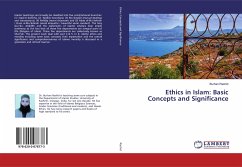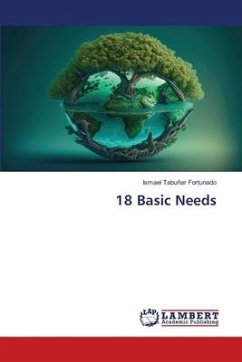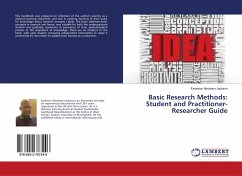
Ethics in Islam: Basic Concepts and Significance
Versandkostenfrei!
Versandfertig in 6-10 Tagen
62,99 €
inkl. MwSt.

PAYBACK Punkte
31 °P sammeln!
Islamic teachings can broadly be classified into five constitutional branches: (1) Aqa'id (beliefs), (2) 'Ibadat (worships), (3) Mu amalat (mutual dealings and transactions), (4) Akhlaq (moral character) and (5) Adab al-Mu ashirah / Husn al-Mu ashirah (social etiquette / beautiful social conduct). The holy Qur'an, Ahadith and the statements of Islamic scholars bear ample testimony to the fact that all these five departments are integral parts of Din (Religion of Islam). These five departments are collectively known as Shari ah. The present work deal with part 4 & 5. In it, Islamic ethics and m...
Islamic teachings can broadly be classified into five constitutional branches: (1) Aqa'id (beliefs), (2) 'Ibadat (worships), (3) Mu amalat (mutual dealings and transactions), (4) Akhlaq (moral character) and (5) Adab al-Mu ashirah / Husn al-Mu ashirah (social etiquette / beautiful social conduct). The holy Qur'an, Ahadith and the statements of Islamic scholars bear ample testimony to the fact that all these five departments are integral parts of Din (Religion of Islam). These five departments are collectively known as Shari ah. The present work deal with part 4 & 5. In it, Islamic ethics and morality including some basic concepts their explanation and the overall significance and comprehensiveness of Islamic morality is discussed in a systematic and refined manner.












